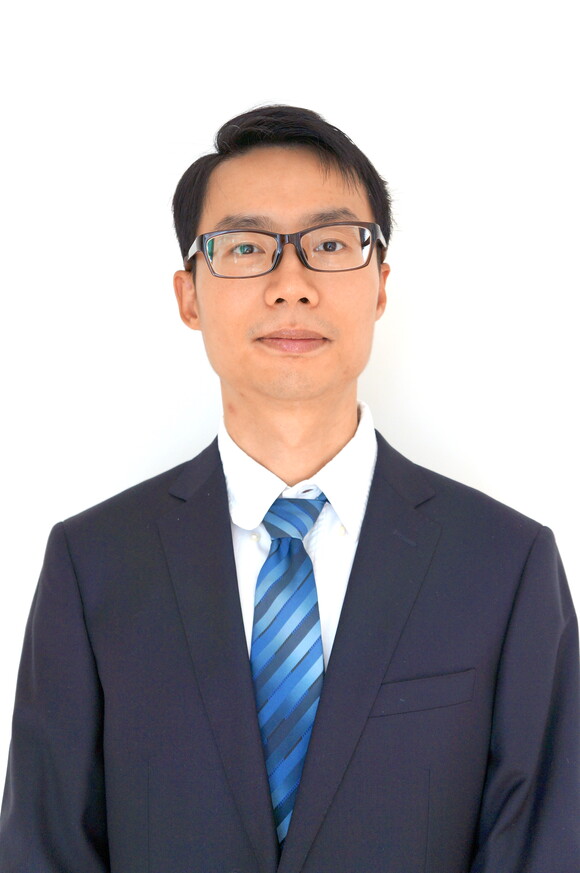17 UiA researchers on list of most productive researchers
Researchers in the social sciences and engineering and science at the University of Agder publish the most scientific papers.
This article is more than two years old, and may contain outdated information.

Zhiyu Jiang at the Faculty of Engineering and Science is among the 17 UiA researchers who is on the list over Norways most productive researchers. Jiang is an associate professor at the Department of Engineering Sciences and a researcher on offshore renewable energy.
Forskerforum has published the overview. It presents a list of the country’s 500 most productive researchers, based on publication points from Unit and the publishing system Cristin (Current Research Information System in Norway).
Jiang says that developing the field in partnership with colleagues and students is more inspiring than being on this list.
“I work hard, like many of my colleagues. In addition, I am lucky enough to have good students and colleagues and a large network that works well together”, Jiang says.
High level of activity
The Faculty of Technology and Engineering has nine researchers on the list.
“I am glad that we have many strong researchers at the faculty who are on the cutting edge. They have found a good rhythm in their research work”, says Michael Rygaard Hansen, dean of the Faculty of Engineering and Science.
There is great diversity in research activity at the faculty. The research ranges from marine research to offshore engineering, and from renewable energy to artificial intelligence.
“Productive researchers have many good professional relationships. They are not always first authors on publications but are involved in several projects and contribute greatly. They are also willing, and almost eager, to have their work evaluated by colleagues. That is important to get articles ready for publication and develop the subject area”, Rygaard Hansen says.
Here is the list of UiA researchers with the most published research articles:
- Nils Chr. Stenseth, professor II at the Department of Natural Sciences
- Jarle Trondal, professor at the Department of Political Science and Management
- Fount LeRon Shults, professor at the Department of Global Development and Community Planning
- Matthias Uwe Pätzold, professor at the Department of Information and Communication Technology
- Ilan Kelman, professor II
- Mohan Lal Kolhe, professor at the Department of Engineering Sciences
- Zhiyu Jiang, associate professor at the Department of Engineering Sciences
- Romulo Teixeira Pinheiro, professor at the Department of Political Science and Management
- John Basantkumar Oommen, professor at the Department of Information and Communication Technology
- Ilan Alon, professor at the Department of Management
- Ilias Pappas, professor at the Department of Information Systems
- Einar Duenger Bøhn, professor at the Department of Religion, Philosophy and History
- Halvor Knutsen, professor at the Department of Natural Sciences and the Institute of Marine Research
- Paul John Thibault, professor at the Department of Nordic and Media Studies
- Michael Ruderman, professor at the Department of Engineering Sciences
- Frank Li, professor at the Department of Information and Communication Technology
- Jing Zhou, professor at the Department of Engineering Sciences
Good work habits and teamwork
Professor Jarle Trondal is the political science researcher in Norway who has published the most in the period from 2017 to 2020. He is also at the top of the 17 UiA researchers who are on the list of Norway's 500 most productive researchers.
Trondal is affiliated with both UiA and the University of Oslo and does research on governance and public administration, organizational theory, and international and European public administration.
His special field is European integration, which is about how European nations have become increasingly intertwined politically, economically, culturally and legally.
In 2021, he published The Palgrave Handbook of EU Crisis together with Marianne Riddervold and Akasemi Newsome.
Trondal achieved a score of 53.67 during the period and is closely followed by UiA professor Fount LeRon Shults. He works at the Department of Global Development and Planning and NORCE and has 49.43 points on the list.
Shults works in the fields of philosophy, religious studies, cultural studies and sociology. He has focused on research using computer modelling about future scenarios of various processes. One example is modelling that attempts to predict how religious and social conflicts may evolve, another is how climate change will affect migratory flows.
Jarle Trondal believes that establishing strong work habits right from the beginning of his career was crucial.
“Research and publication have been the main focus for me from day one on the PhD course. Teaching is a consequence of research, and not a main activity. I also work project-based with many ongoing parallel production processes, which means that there are regularly completed projects to report from”, he says.
He also highlights the value of good teams of people from different parts of the world and with different skills.
“Such teams help make the work more efficient because more hours of the day are utilized due to the time differences”, Trondal says.
Wants more support
Trondal calls for more research support and wants administrative services closer to the researcher.
“I hope the university will use the numbers that appear on the publication list to find solutions to provide more support for productive researchers who publish a lot. Research projects are collaborations where all those involved must chip in. The university must take part in the collective voluntary effort it is to bring about results. I want resources to be built up where the scientific production takes place”, Trondal says.
He currently plans several new handbooks in the Palgrave Handbook series.

